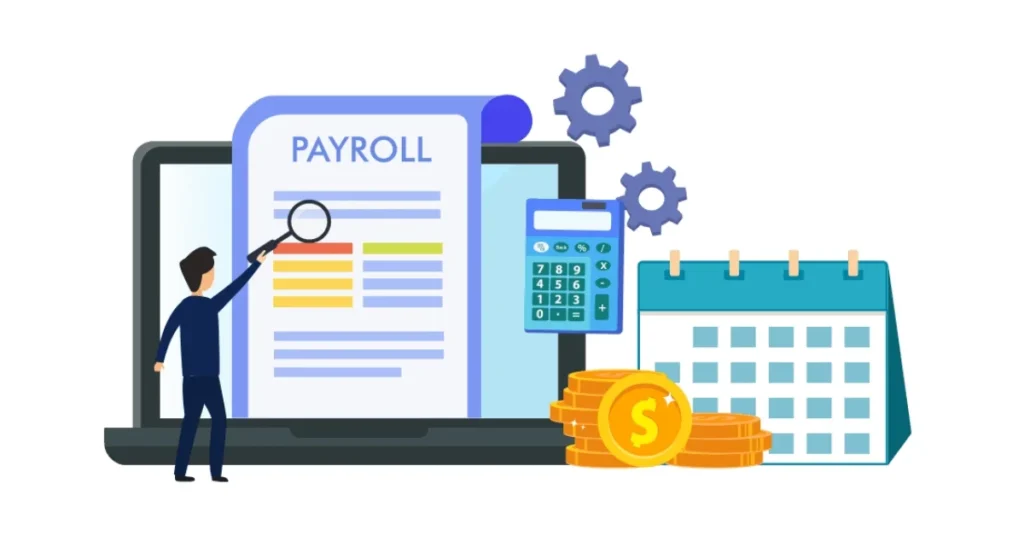
Key Takeaways
- Understand the advantages of cloud-based payroll systems over traditional methods.
- Explore the impact on business efficiency and compliance.
- Learn about the potential cost savings and other benefits.
Benefits of Using Cloud-Based Payroll Systems
Transitioning to a cloud-based payroll system can offer numerous benefits over traditional payroll methods. Organizations can manage payroll processes with greater efficiency and accuracy. By leveraging cloud payroll systems, companies can effortlessly optimize their payroll operations. Cloud-based payroll solutions eliminate numerous issues commonly found in traditional payroll management, like manual data input and the potential for human mistakes. With an automated cloud-based system, tasks like calculating wages, deducting taxes, and distributing payments become seamless and error-free, ensuring employees are paid accurately and on time. Furthermore, storing payroll data on the cloud means real-time updates, providing management quick access to information, which is critical for decision-making and reporting. This immediate access allows businesses to make informed decisions more swiftly, enhancing operational efficiency.
Moreover, cloud payroll systems often come with user-friendly interfaces, making it easier for HR teams to navigate and utilize the software effectively. Training new personnel on cloud-based systems is generally more straightforward than traditional methods, reducing the learning curve and increasing productivity from the outset. The ease of use and accessibility of these systems significantly contribute to smoother and more effective payroll management, ensuring that businesses can maintain high operational efficiency and accuracy.
How Cloud Payroll Improves Business Efficiency
One of the primary benefits of cloud payroll systems is the significant improvement in business efficiency. Automation reduces manual errors and saves time, allowing human resources personnel to focus on other essential tasks and streamlining payroll operations, which results in quicker processing times and better resource allocation.
Automated systems enable HR teams to focus on strategic initiatives and employee engagement by handling repetitive tasks. Furthermore, cloud-based payroll systems make it easier to combine payroll information with other company systems, like accounting and HR management systems. This integration accelerates procedures and guarantees uniform information across various departments. Moreover, cloud-based payroll systems offer enhanced scalability, essential for growing businesses. As a company expands, adding new employees to the payroll system is smooth and straightforward. This flexibility ensures that companies can efficiently manage their payroll regardless of their size or number of employees.
Another crucial aspect of cloud payroll systems is their ability to support remote work environments. In today’s increasingly globalized business climate, having the flexibility to manage payroll from any location is invaluable. HR teams can securely access payroll data and perform necessary tasks remotely, ensuring uninterrupted payroll operations. This flexibility is particularly beneficial in scenarios such as the COVID-19 pandemic, where remote work has become essential for businesses worldwide.

Compliance and Security Advantages
It is essential to ensure that a business meets regulatory requirements. Cloud-based payroll systems frequently include compliance features that are consistently updated to align with alterations in laws and regulations. This guarantees that companies remain compliant without needing ongoing manual updates.
Additionally, these systems typically offer enhanced security features, protecting sensitive employee data from breaches. Cloud technology improves business security by providing better data encryption and secure access controls. Loud payroll systems also provide detailed audit trails critical for compliance and security purposes. The audit trails record every transaction and change made within the system, ensuring businesses can track and review any modifications. This feature is precious during external audits or internal reviews, providing transparency and accountability.
Utilizing a cloud-based solution makes disaster recovery and business continuity planning easier. Data in the cloud is regularly backed up and can be easily accessed in case of unexpected disruptions, enabling seamless payroll operations and protecting the company’s credibility. Companies can feel confident knowing their payroll data is safe and they are ready for any unforeseen circus dances.
Potential Cost Savings
Switching to a cloud-based payroll system can lead to significant cost savings for businesses. By reducing the need for physical infrastructure and the administrative burdens associated with traditional payroll methods, companies can reallocate funds to other critical areas. The efficiency gained through automation further contributes to cost reductions.
Cloud-based payroll systems typically function under a subscription model, eliminating the necessity for large initial payments for software and hardware. Additionally, businesses can avoid costly penalties and fines by reducing errors and improving compliance with payroll regulations. Moreover, cloud payroll services often come with ongoing updates and upkeep covered in the subscription price, decreasing the reliance on IT personnel and related expenses.
Moreover, accessing payroll data from anywhere allows businesses to eliminate related travel costs for payroll management. For example, outsourcing payroll management to a remote team or allowing employees to work from different locations becomes more feasible with cloud-based systems.
Furthermore, cloud-based payroll platforms often include analysis features that help businesses better understand their payroll operations. These insights can help identify inefficiencies and areas for improvement, leading to further cost savings. Companies can make informed decisions about workforce management, budgeting, and strategic initiatives by analyzing payroll data. This data-driven approach helps optimize payroll expenses and improve overall financial management.
Real-World Examples of Cloud Payroll Success
Numerous businesses have successfully transitioned to cloud-based payroll systems. By adopting these modern solutions, companies have experienced enhanced productivity, better compliance, and substantial cost savings.
For instance, a medium-sized retail company saw a 30% reduction in payroll processing time and a significant decrease in payroll errors after switching to a cloud-based system. Another example is a multinational firm that successfully managed payroll for its global workforce with real-time access to data and ensured compliance with different countries’ regulations. The company reported enhanced accuracy and efficiency in managing payroll for employees working in various regions.
Additionally, a tech startup that integrated a cloud payroll system within its first year of operations could scale its workforce rapidly without facing payroll management issues. This enabled the startup to concentrate on its primary business operations and expansion instead of being overwhelmed by administrative duties. The flexibility of cloud payroll systems allowed the startup to modify its payroll procedures as it expanded quickly, showcasing the flexibility and reliability of cloud-based solutions.
Another compelling example is a large manufacturing company that transitioned to cloud payroll to manage its complex payroll needs across multiple locations. By adopting a cloud-based solution, the company streamlined its payroll processes, reduced costs associated with maintaining on-premise systems, and improved data accuracy. The transition to cloud payroll also enabled the company to provide better support and timely payments to its employees, enhancing overall job satisfaction and employee retention.
